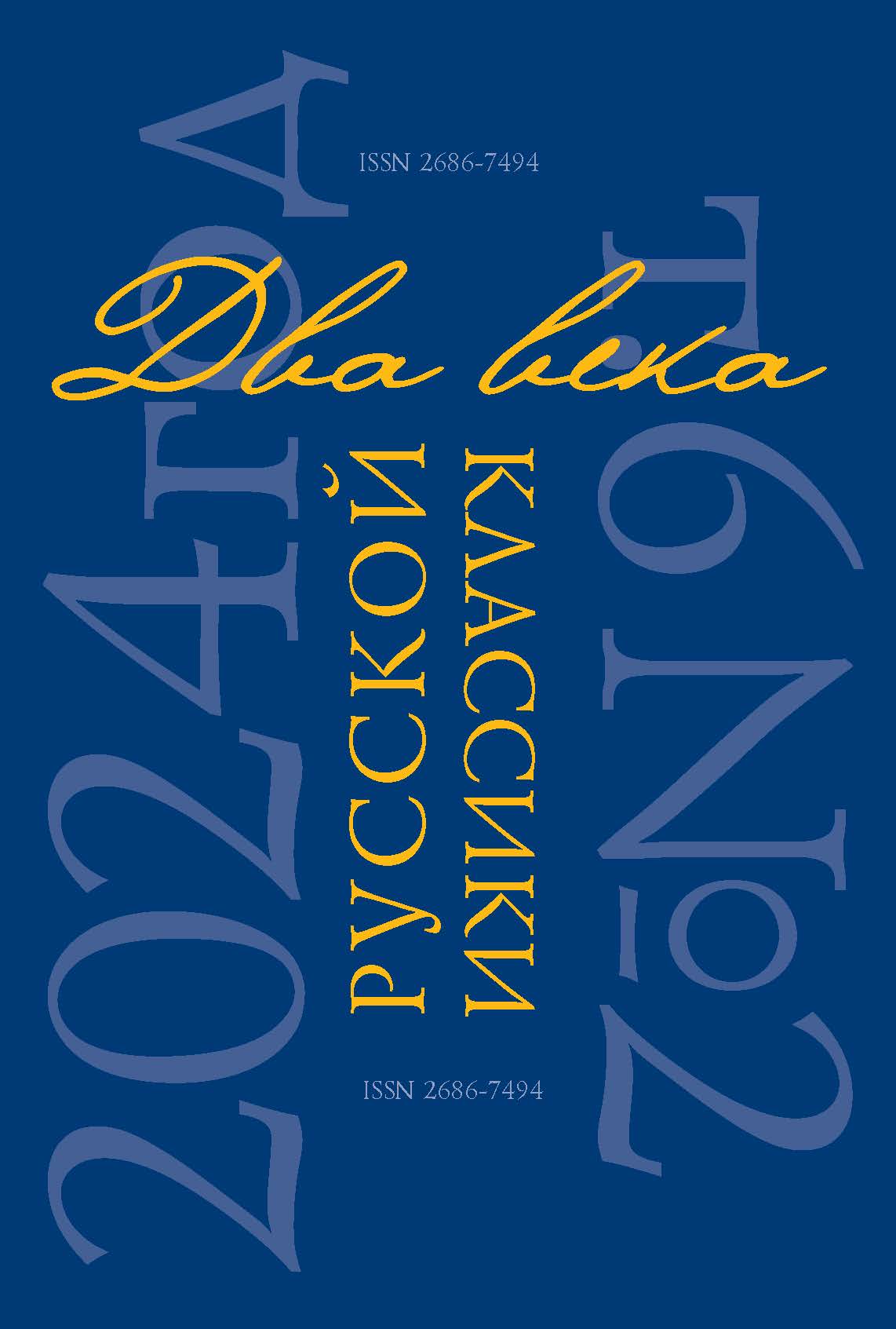Organisation and procedure of reviewing.
1. Reviewing manuscripts presented for publication in the journal «Two centuries of the Russian classics»is organised by the editorial board.
2. The editor, the editorial board members and the executive secretary of the journal shall be responsible for the quality of reviews and timeliness of reviewing manuscripts.
3. The expertise is classified as confidential, the review is provided to the author by the author’s written request without the reviewer’s signature and name, without naming position and place of work of the reviewer.
4. The final decision on acceptance of the article of the author and its placement in one of the issues is taken at the meeting of the editorial board. The Editorial Board shall inform the author of the decision at the author’s request. The Editorial Board directs the author of the article not accepted the motivated refusal upon request of the author.
5. Both members of the editorial council and the editorial board of scientific periodical «Two centuries of the Russian classics»and highly qualified scientists and experts of A. M. Gorky Institute of World Literature of the Russian Academy of Sciences and other institutions and enterprises, who are considered to have inherent professional knowledge and experience in the relevant scientific field, can be involved as reviewers for reviewing manuscripts. The author or the coauthor of the paper under review should not be the reviewer.
6. Reviews of manuscripts of articles should be stored in the thematic series of the editorial board for three years from the date of publication of the articles and be available on the very first request of the expert council of Russian Federation Higher Attestation Commission.
7. In case of the positive review and the recommendation the manuscript and the text of the review are considered by the reviewer of material to the publication at journal the editorial board meeting. Existence of the positive review is not the sufficient basis for the publication of article. The decision on expediency of the publication is made by an editorial board.
8. If the reviewer indicates material completions the need, the manuscript is returned to the author. In that case date of receipt in edition date of return of the modifed manuscript is considered. The explanation of the aspects needing improvement is made by the responsible secretary of the journal on the basis of the received review.
9. If the reviewer does not recommend article for the publication, the review and the manuscript are considered at a meeting of an editorial board of the «Two centuries of the Russian classics»where the editorial board rejects article or decides to allow nevertheless material to the publication after transfer to his other reviewer. In case of obtaining two negative reviews the manuscript is not considered by an editorial board any more.
10. Articles of graduate students are accepted and transferred to reviewing only at existence of a positive review of the research supervisor.
Requirements for the review content.
1. A review should contain a qualified analysis of the article’s material, its unbiased and substantiated assessment and grounded recommendations.
2. The review can be prepared by the reviewer in free form or in the form of filled expert questionnaire approved by the editorial board.
3. It is necessary to pay attention to coverage the following issues in the review. – General analysis of scientific level, terminology, structure of the article, topicality of the theme.
– Assessment of preparedness of the article for publication regarding language and style, regarding its compliance with the established requirements for materials registration in the article.
– Scientific character of stating, correspondence of the methods, techniques, used by the author, of the author’s recommendations and research findings to the achievements of modern science and practice.
– Admissibility of the length of the article as a whole and of its individual elements (text, tables, illustrations, bibliographic references). Expediency of premises in the article tables, illustrations and their compliance with the stated topic.
– Place of the book under review among others, already printed on this topic: what's new in it, or how it differs from them, whether it duplicates the work of other authors or the previously printed work of this author (in whole or in part).
– Inaccuracies and errors admitted by the author, and recommendations to the author and to the editorial board on improving the manuscript.
4. The reviewer’s comments and suggestions should be objective and principled, aimed at improving the scientific and methodological level of the manuscript.
5. Substantiated conclusions about the article as a whole and a clear recommendation on the advisability of its publication in the journal on a particular scientific field, corresponding the nomenclature of scientific specialties, approved by Russian Federation Higher Attestation Commission, shall be contained in the final part of the review.
6. The reviewer shall justify the conclusions particularly convincing in the case of a negative assessment of the manuscript as a whole.









